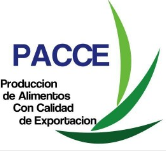–
February 22, 2014Posted in: Materiales
Buenos días, tarea para el martes 6 de marzo.
El artículo completo: “Interfacial rheology of low interfacial tension systems using a new oscillating spinning drop method” publicado por el Journal of Colloid and Interface Science y realizado en el Laboratorio FIRP bajo la tutoría del Profesor Jean-Louis Salager, la Profesora Ana Forgiarini y la asesoría de la Profesora Dominique Langevin de la Universidad Paris Sud de Francia estará gratuito para descargarlo por 50 días a través del enlace:
Luego de este tiempo va a costar 41 $ descargarlo..
La tarea consiste en realizar en grupos de 4 personas un resumen de las partes más importantes del artículo y relacionarlo con la materia Materiales de Ingeniería Química. Por ejemplo, si el artículo habla de reología interfacial, leer acerca del concepto de reología, etc. Esto valdrá 1 pto de la nota del primer examen. Debe estar muy bien hecho porque vale 1 pto de un examen de 28%.
Abstract
When surfactants adsorb at liquid interfaces, they not only decrease the surface tension, they confer rheological properties to the interfaces. There are two types of rheological parameters associated to interfacial layers: compression and shear. The elastic response is described by a storage modulus and the dissipation by a loss modulus or equivalently a surface viscosity. Various types of instruments are available for the measurements of these coefficients, the most common being oscillating pendent drops instruments and rheometers equipped with bicones. These instruments are applicable to systems with large enough interfacial tensions, typically above a few mN/m.
We use a new type of instrument based on spinning drop oscillations, allowing to extend the interfacial rheology studies to low and ultralow interfacial tension systems. We present examples of measurements with systems of high and low tension, discuss the possible artifacts and demonstrate the capability of this new technique. We emphasize that the data shown for low interfacial tensions are the first reported in the literature. The instrument is potentially interesting for instance in enhanced oil recovery or demulsification studies.

About admin
Ronald Márquez es Ingeniero Químico de la Universidad de los Andes (Merida-Venezuela) y actualmente se encuentra realizando estudios Doctorales en el área de Reología Interfacial en aplicaciones de Deshidratación de crudo y Recuperación mejorada de petróleo. Es profesor Agregado del Departamento de Química Industrial y Aplicada e investigador del Laboratorio FIRP desde hace 10 años. Posee más de 10 comunicaciones y publicaciones en congresos y revistas científicas.
 orcid.org/0000-0001-6003-7487
orcid.org/0000-0001-6003-7487







 - ULA
- ULA Guia de Alta Montaña
Guia de Alta Montaña Industrial Chemistry – Texas A&M
Industrial Chemistry – Texas A&M Laboratorio FIRP
Laboratorio FIRP Materials Learning – Cambridge Univ.
Materials Learning – Cambridge Univ. Petroleum Refining – Colorado Univ.
Petroleum Refining – Colorado Univ. COLMEQUIM
COLMEQUIM BIOVEN
BIOVEN CARPA
CARPA GUMMYN
GUMMYN PACCE
PACCE PharmaQuim
PharmaQuim PRODELIM
PRODELIM WATERFRESH
WATERFRESH ALITOS
ALITOS Biocosmetiq's
Biocosmetiq's E.B.T. Bebidas y Licores
E.B.T. Bebidas y Licores GELES BETA C.A
GELES BETA C.A NatuVie
NatuVie Productos de Gel de Aloe Vera
Productos de Gel de Aloe Vera Determer
Determer PECTIPRODS Mérida
PECTIPRODS Mérida PETROING C.A.
PETROING C.A. Soft&Pure
Soft&Pure ALQUIVEN C.A.
ALQUIVEN C.A. Deshoil C.A.
Deshoil C.A. Ecopetroliq’s
Ecopetroliq’s Pequinoil S.A
Pequinoil S.A PetroCrack CA
PetroCrack CA Petrol C.A.
Petrol C.A. REFILUB
REFILUB